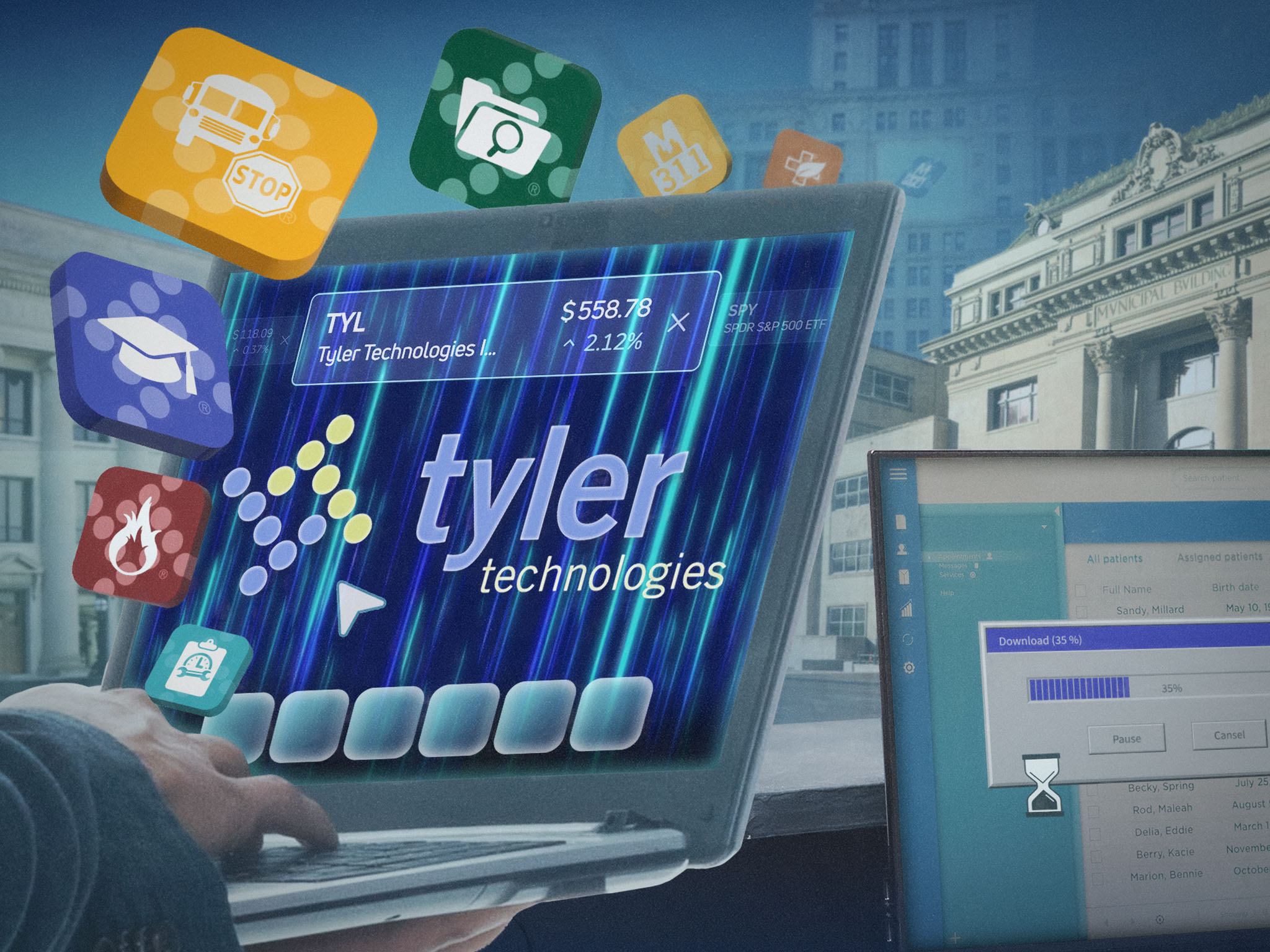Companies that dominate obscure niches can be quite profitable. Tyler Technologies (NYSE: TYL) is a case in point. It provides software to municipal, country and state governments.
In the second quarter, Tyler posted revenue of $596 million, up 10% from a year earlier. Profit soared 25% to $84.6 million. Its gross profit margin climbed to 46% from 44%. And Tyler expects the good times to roll on. It forecast revenue will total $2.33 billion to $2.36 billion this year, up from $2.14 billion in 2024.
Tyler provides software for just about every function in the municipal universe from construction permitting, to police dispatching, to restaurant inspection. Customers include the California state parks system, the nation’s second largest, and the Florida prison system, the nation’s third largest, according to Bloomberg.
The company has benefited from migration to the cloud and shifting from a license-based billing model to software as a service (SaaS). Tyler has an 11%-15% share of the software market for state and local governments, according to Google artificial intelligence. Microsoft is second at 8%.
“Tyler benefits from a fragmented market that includes no companies at anywhere near its size or scale that are focused on the local public institution market,” Morningstar analyst Dan Romanoff wrote in a commentary.
SaaS to the rescue
He says the company’s focus on SaaS will continue to pay off, as will the antiquated state of municipalities’ current software. “There is a decade-long runway for normalized top-line growth near 10% at Tyler,” he said. That’s true “especially as demand for SaaS accelerates and the need to modernize local governments’ legacy enterprise resource planning systems intensifies.”
Some customers have systems at least 20 years old and lack programmers who know how to keep them running.
Tyler also has put an emphasis on transactional recurring revenue, such as e-filings of court documents and village hall web portals for basic services like paying water bills online, Romanoff notes. The company’s 2021 acquisition of NIC, a leader in government solutions and payments, helped expand transactional recurring revenue.
To be sure, not everything is rosy for Tyler. It has suffered several data breaches over the last seven years, and announced a settlement for the latest one in March. That has played a role in pushing the stock down 11% in the last six months.
Government spending slowdown
There also has been concern about a potential slowdown in state and local government spending, as the federal government trims its own outlays. The federal government devoted 16% of its spending, or $1.1 trillion, to state and local governments last year. Some of that money may be going to finance state and local governments’ software expenses.
But, “the vast majority of Tyler clients do not expect federal funding, DOGE (Department of Government Efficiency) or other macro factors to impact their spend with Tyler,” the company’s CEO Lynn Moore said July 31.
“We’re seeing no fundamental change in public sector demand, … and our sales pipeline remains strong, supported by generally healthy budgets with funding priorities increasingly aligned to technology investments.”
A Bloomberg story last year was littered with customer complaints about the company. But Tyler responded that it has a 98% client retention rate, that almost all of its setups work well, and the few that don’t get sensationalized.
So Tyler may continue to dominate its niche.
The author owns shares of Tyler Technologies




Comments